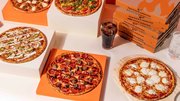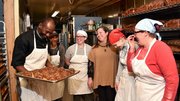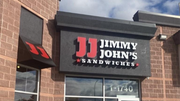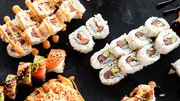News
Big-name food trucks hitting the road

September 8, 2010
What began as a modest neighborhood hot dog slinger has snowballed into a full-fledged craze glorified on The Food Network and emulated by big-name chains including Sizzler and Subway.
Food trucks are hitting the road in droves and, according to the LA Times, traffic is starting to get heavy.
For example, the Sprinkles Cupcakes chain has added a truck to its 11 locations; Sizzler U.S.A. is set to roll out in Southern California; and Subway's sandwich truck will debut in Arizona. Fatburger is awaiting a delivery of seven trucks, and Johnny Rockets has a truck cruising around Washington, D.C., with plans to add more to its fleet.
Food trucks are hardly a new concept in the quick-service and fast casual segments. Dairy Queen launched its Blizzard-Mobile in the spring.
Taco Bell, Arby's, Carl's Jr., In-and-Out Burger, and Gold Star Chili all have tricked-out mobile units. Burgerville's "Nomad" began cruising around last year.
The trucks provide restaurants with an innovative way to expand their reach, relying on social media networks such as Twitter and Facebook to promote their whereabouts. They typically cost between $40,000 and $100,000 and complement a bricks-and-mortar establishment.
Burgerville CEO Jeff Harvey said last year that the Nomad is a way to expand the company footprint during a tight economy.
"I began to get curious based on the success of the model and the loyalty it was creating," he said. "Research told me (it) was and is creating very deep relationships with guests in local markets."
A report in October 2009 by restaurant consulting group Technomic concluded mobile units provide cost savings and agility, and customers are likely to be value-seekers and those interested in trying something new.
The most popular food trucks offer a unique menu opportunity, said Darren Tristano, Technomic executive vice president. He foresees smaller chains having more success.
"McDonald's may not be successful, but In-N-Out may," he said. "They've got a cult following. And they've got 200 restaurants instead of 14,000. So there's a big difference."
Still, according to the LA Times article, Aaron Noveshen, a restaurant industry consultant and co-owner of Pacific Catch restaurants and Mobi Munch, 10 percent of the top 200 chains will have trucks on the road within the two years.
From the story:
"It's definitely here to stay," said Mary Sue Milliken, chef and co-owner of Border Grill, Ciudad and other restaurants. Her company has two trucks in Los Angeles and is considering using one in Las Vegas. Food trucks, she said, allow restaurateurs to bring food to people in congested areas or places that can't support a full-on restaurant.












